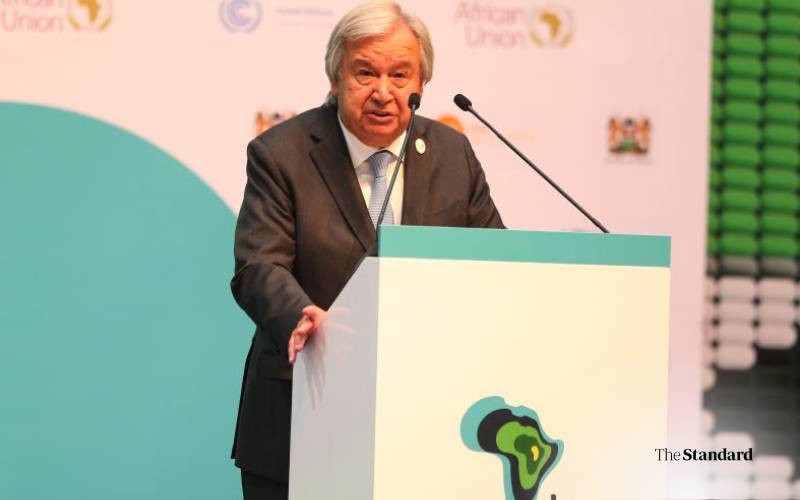Nations worldwide have been urged to embrace dialogue as a means of urgently addressing escalating global conflicts. The call was made on Thursday during preparations for the first International Day for Dialogue Among Civilizations, held at the United Nations Office in Nairobi (UNON).
UN Secretary-General, António Guterres, in a message delivered by Zainab Hawa Bangura, Under-Secretary-General and Director-General of UNON, expressed concerns over growing conflicts, saying the mission to find peace "is more urgent than ever."
"Around the world, we hear rising voices of intolerance and xenophobia, amplified by online misinformation and hate speech. In our fractured world, dialogue is not optional – it is essential for building bridges of understanding and trust," said Mr Guterres.
He urged the organisation to promote dialogue, the fundamental conviction on which its establishment was anchored.
"Where dialogue is missing, ignorance fills the void. So, too, is the work of the United Nations Alliance of Civilizations, reinforced by the global platform for dialogue that it has created over the past two decades," he said.
International Day for Dialogue Among Civilizations was adopted to be celebrated on June 10, every year, by the UN General Assembly during its 78th sitting.
It was a proposal by China as an avenue to rally countries to resolve challenges through consensus.
This year's celebrations, according to the organisers, are expected to be held at the UN Headquarters in New York, with a series of similar events also slated to take place in Nairobi, Geneva, Vienna, Rome, Bangkok, among many other countries.
While describing dialogue as "only a project for the future," Permanent Representative of Kenya to the United Nations Environmental Programme (UNEP), Ababu Namwamba, rallied leaders to embrace the Kenyan harambee (togetherness) in the face of challenges.
"I find a particularly striking manifestation of this truth in the African spirit of Ubuntu. Ubuntu means, I am because we are, or humanity because of us, meaning I choose myself and my humanity because of you and your humanity," he said.
He added: "The future is only a project of dialogue and open discussion, as people foster agreement with society, then achieve a more just society. So, it is part of the wisdom, born in sorrow, marching forward."
He observed that the world is currently confronted with several challenges, including threats of war, epidemics, nuclear proliferation, and climate change, that need commitment, even as he lauded the UN for the role it has played in advocating for peace.
Ambassador of the People’s Republic of China to Kenya, Guo Haiyan, implored countries to embrace cultural exchanges to transcend complex challenges that the world is grappling with.
"In the face of such a turbulent world with increasing challenges, we need more dialogues among flourishing civilizations than ever before to gain mutual understanding. To build a global community of shared future for mankind, each civilization should pursue diversity and seek common ground while preserving differences," she said.
At the same time, she urged world leaders to emulate China's Global Civilization Initiative (GCI), a programme that she says has successfully helped them advocates respect for diversity of civilizations, the common values of humanity, and the robust importance of inheritance and innovation of civilizations, and robust people-to-people exchanges and cooperation.
Ms. Haiyan also believes that upholding inclusiveness to beat superiority would also contribute to harmonious coexistence among nations, while urging them to promote mutual learning to transcend clashes.
"With the dregs of civilization superiority theory resurfacing, some powers, in the name of culture, attempt to provoke confrontation and cultural hegemony," she stated. By Okumu Modachi , The Standard






